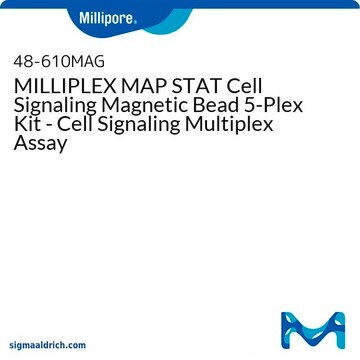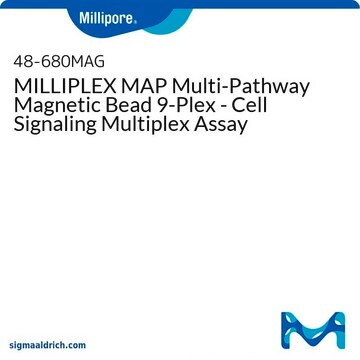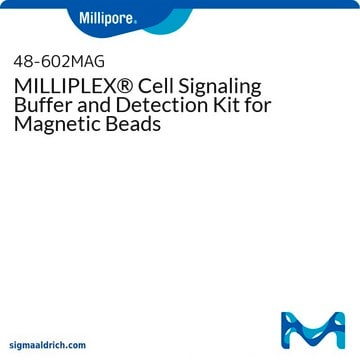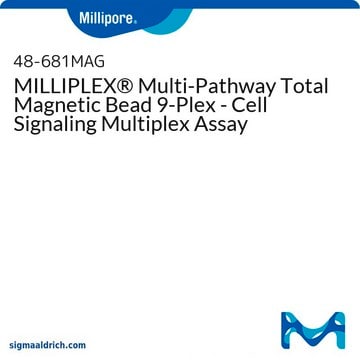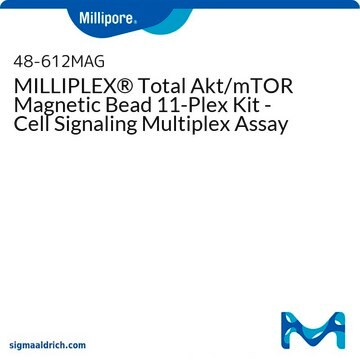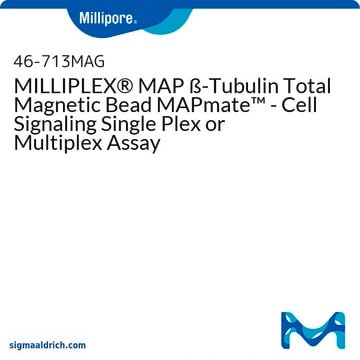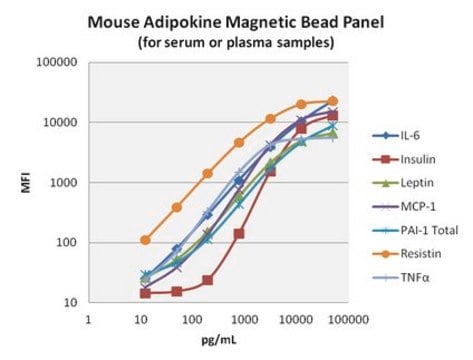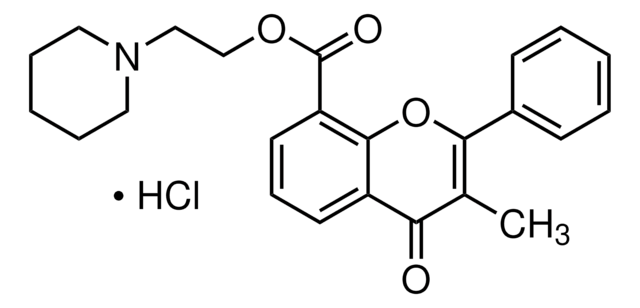48-623MAG
MILLIPLEX® Phospho/Total STAT3 Magnetic Bead 2-Plex Kit - Cell Signaling Multiplex Assay
Synonym(s):
2-Plex Phospho/Total Kit, Cell Signaling STAT3 Kit, STAT3 Bead Kit
About This Item
Recommended Products
species reactivity
human, mouse
Quality Level
manufacturer/tradename
Milliplex®
technique(s)
multiplexing: suitable
detection method
fluorometric (Luminex® xMAP®)
storage temp.
2-8°C
General description
Specificity
Application
Packaging
Legal Information
Disclaimer
signalword
Danger
hcodes
Hazard Classifications
Acute Tox. 4 Oral - Aquatic Acute 1 - Aquatic Chronic 2 - Eye Dam. 1 - Skin Irrit. 2
Storage Class
10 - Combustible liquids
Certificates of Analysis (COA)
Search for Certificates of Analysis (COA) by entering the products Lot/Batch Number. Lot and Batch Numbers can be found on a product’s label following the words ‘Lot’ or ‘Batch’.
Already Own This Product?
Find documentation for the products that you have recently purchased in the Document Library.
Related Content
MILLIPLEX® cell signaling assays facilitate detection of phosphoproteins and total proteins in cellular pathways.
Our team of scientists has experience in all areas of research including Life Science, Material Science, Chemical Synthesis, Chromatography, Analytical and many others.
Contact Technical Service